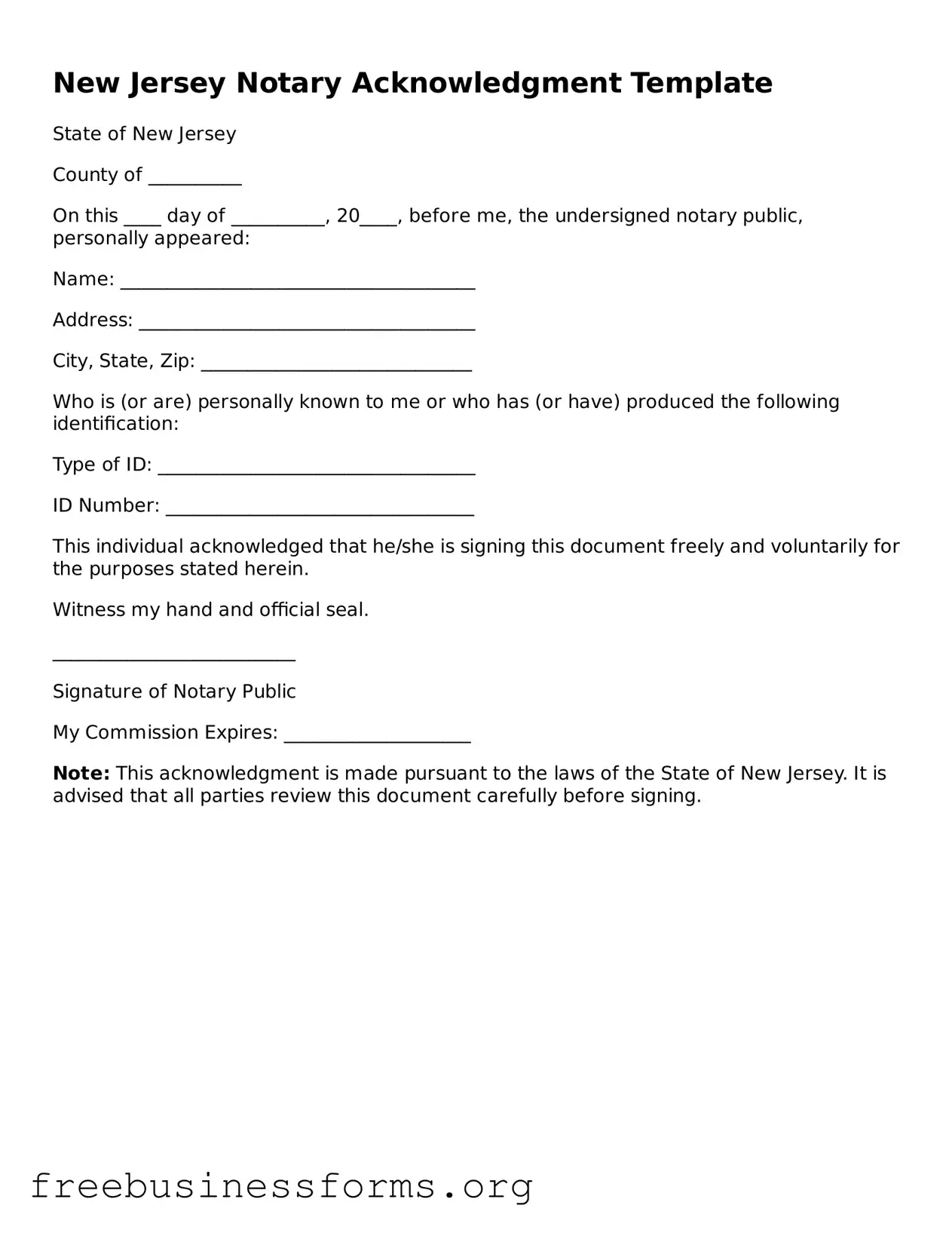Blank Notary Acknowledgement Template for New Jersey
The New Jersey Notary Acknowledgement form is a legal document used to verify the identity of a signer and confirm that they willingly signed a document. This form is essential in ensuring that the signing process is legitimate and recognized under New Jersey law. Understanding its purpose and requirements can help individuals navigate the notarization process more effectively.
Open Form Here

Blank Notary Acknowledgement Template for New Jersey
Open Form Here

Open Form Here
or
↓ PDF File
Quickly complete this form online
Complete your Notary Acknowledgement online quickly — edit, save, download.